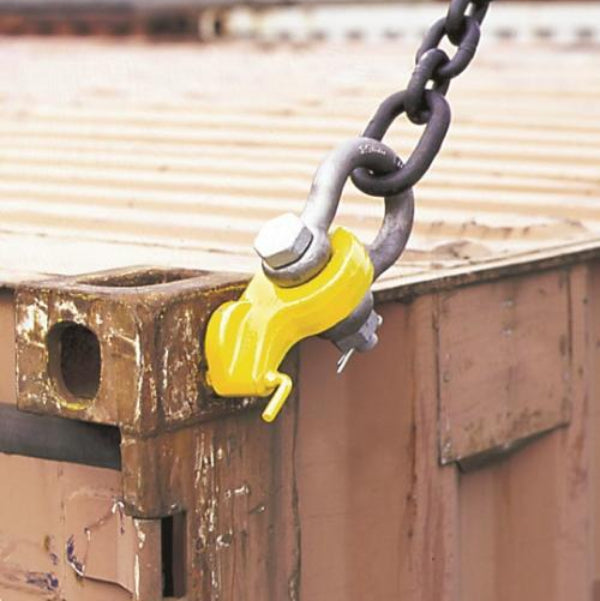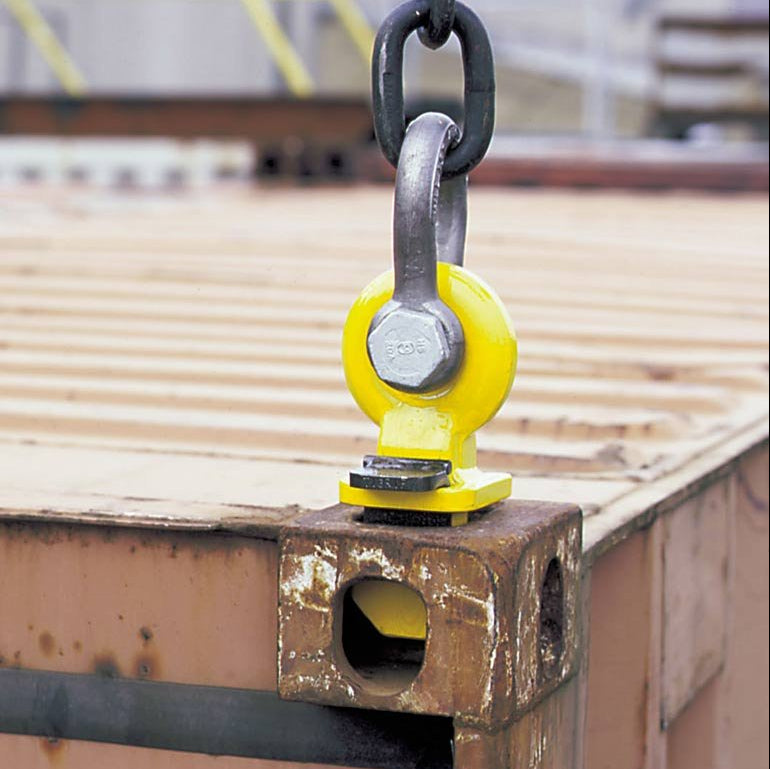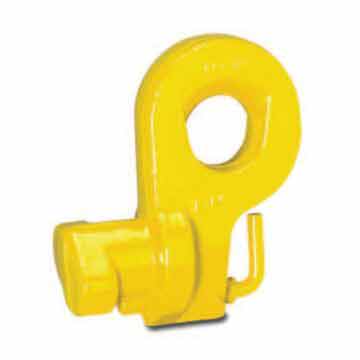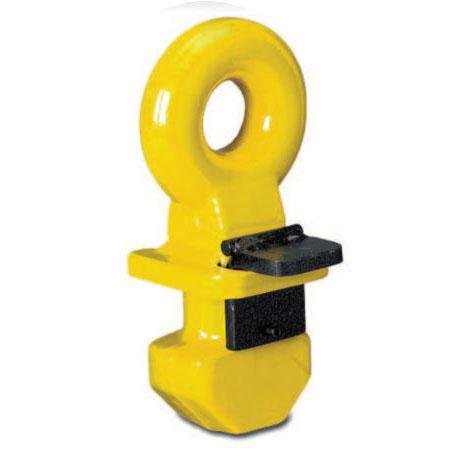Container Lifting Lugs
Container Lifting Lugs - CLB (Side Lifting) is backordered and will ship as soon as it is back in stock.
Couldn't load pickup availability
Fast Shipping
Products typically despatched within 1-2 working days*
Certification
Products include certification and training courses issue certificates upon completion
Flexible Payment
Bank Transfers accepted (Contact Us)
Best Rated
Trusted across the UK for lifting expertise and industry knowledge
-
When moving or stacking shipping containers, a dependable set of Container Lifting Lugs provides the secure connection you need. Supplied in sets of four, these heavy duty lugs have a combined working load of up to 56 tonnes and are designed to attach directly to the container’s corner castings. Each lug can be used with Lifting Chains or slings to form a safe, stable lifting assembly for ports, construction sites, and industrial yards across the UK. Two versions are available depending on how you need to connect them.
The CLB container lifting lug mounts horizontally to the side of the container either at the top or bottom holes and features a spring-loaded bolt to stop accidental release. The CLT container lifting lug fits vertically into the top corner aperture; a quick 90 degree turn locks it securely in place, ready for use with a spreader beam or lifting frame. Manufactured from high-grade steel, each unit is UKCA or CE marked to meet current lifting regulations. Built for strength, durability, and consistent performance, these lugs offer reliable handling in demanding conditions. Note: container lifting lugs must not be used on a four leg chain sling. -
Origin:
United Kingdom
Model Types
CLB or CLT
CLB Capacity*:
Type of lifting: side lifting
32000kg (50 degrees sling angle from vertical)
40000kg (36 degrees sling angle from vertical)
50000kg (Vertical)
CLT Capacity*:
Type of lifting: top lifting
56000kg (Vertical)
Quantities:
*Set of 4 lugs
Documentation:
UKCA / CE Mark where required and with Certification
-
Specification sheet: 
Payment & Security
Payment methods
Your payment information is processed securely. We do not store credit card details nor have access to your credit card information.
Frequently Asked Questions
What is the purpose of a container lifting lug?
What is the purpose of a container lifting lug?
Container lifting lugs are designed to safely lift and transport shipping containers by providing secure attachment points for cranes or hoists. They ensure even load distribution and prevent damage during lifting. At Lifting365 UK, we supply high quality, certified lifting lugs suitable for both standard and heavy duty containers, helping businesses meet UK lifting and safety requirements.
Can lifting lugs be welded to a container?
Can lifting lugs be welded to a container?
No, our container lifting lugs are designed to be attached to the container’s corner castings and be used with either slings or Lifting Chains.
Can lifting lugs be used on all container types?
Can lifting lugs be used on all container types?
Most container lifting lugs are designed for standard ISO containers, but different configurations are available for non standard or custom built units.
Are container lifting lugs safe for heavy duty lifting?
Are container lifting lugs safe for heavy duty lifting?
Yes, our container lifting lugs are engineered for heavy duty lifting tasks, with a total capacity of 54 tonnes.
Do container lifting lugs need certification in the UK?
Do container lifting lugs need certification in the UK?
Yes. In the UK, container lifting lugs must comply with LOLER 1998 and other relevant safety standards. Certification ensures the equipment has been tested for strength, load capacity, and durability. At Lifting365 UK, all our container lifting lugs are fully certified and supplied with the required documentation for compliance and safe use.
Can container lifting lugs handle uneven loads?
Can container lifting lugs handle uneven loads?
Yes, but they must be correctly positioned and rated for the container’s total weight. Uneven or unbalanced loads can increase stress on the lifting points, so proper rigging and alignment are essential.





